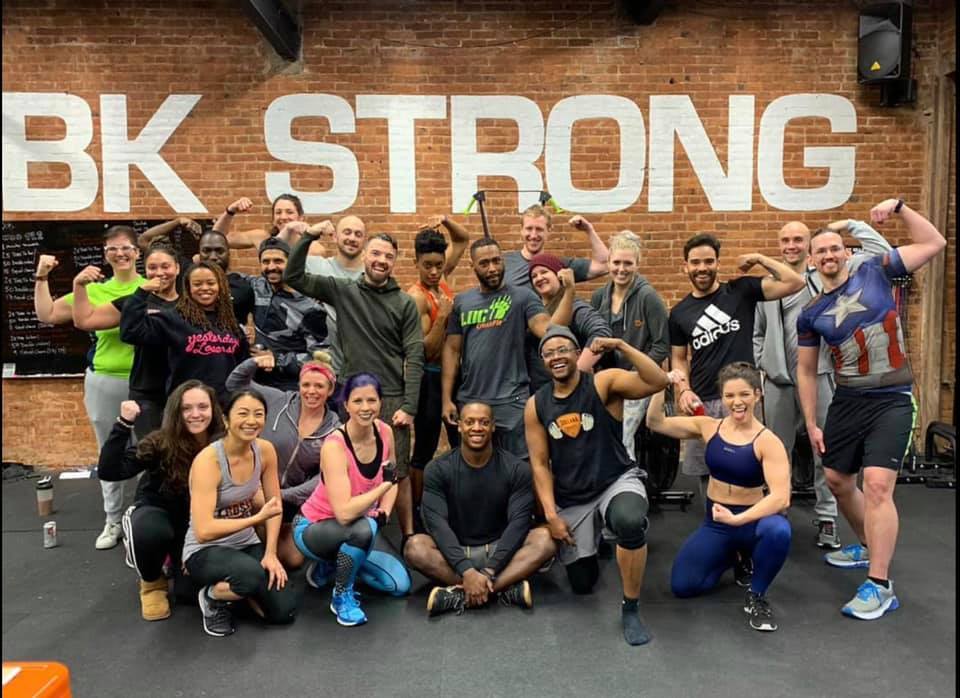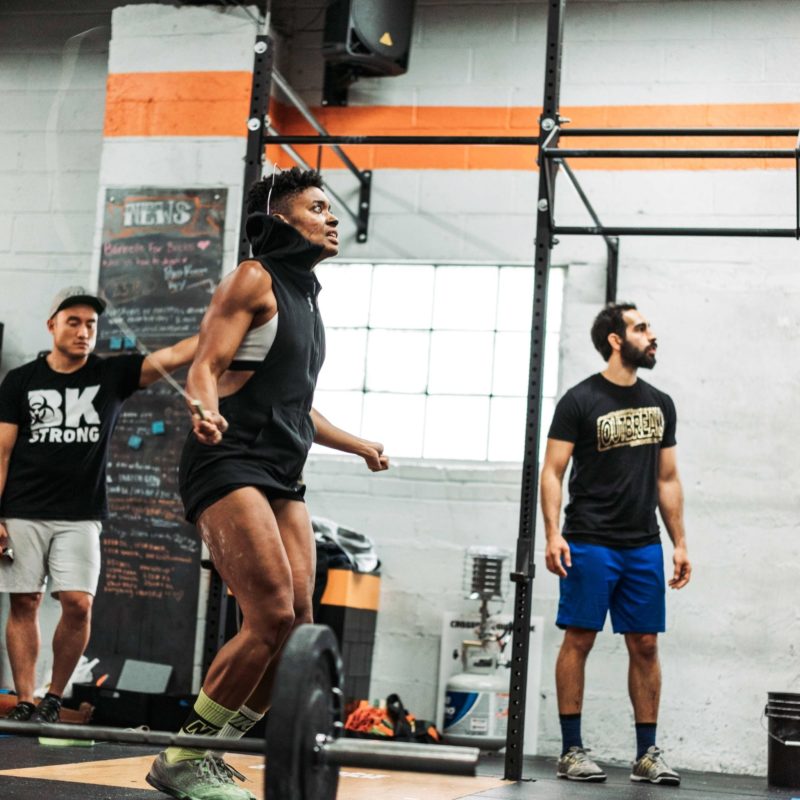Brooklyn CrossFit Gyms Respond To Controversy – De-Affiliate And Change Names

CrossFit gym managers, patrons, and trainers have been reeling the last week following racist comments made by their CEO, George Glassman. The comments eventually prompted Glassman’s resignation from the company, as well as many gyms to de-affiliate.
Brooklyn’s CrossFit Outbreak is one such gym, and will be changing their name to BK Fit. Adam Sturm, the owner, joked to Bklyner that the original name now had a double negative connotation, given the presence of the pandemic. Similarly, Crow Hill CrossFit in Crown Heights will now be Murder of Crows Fitness, and CrossFit South Brooklyn will potentially be Community Fitness South Brooklyn.
In the wake of the comments, the gym has chosen to de-affiliate, meaning that they will no longer be an official CrossFit gym, Sturm says. It is one of several Brooklyn CrossFit gyms that have chosen this path, and he says that they’ve been considering it for a while.
Adele Jackson-Gibson, a CrossFit trainer, journalist, and Black woman, wasn’t terribly surprised by the comments Glassman made.
“I first saw it through one of the top CrossFitters, who was white and from Iceland. She had posted it [comment to CEOs statement on Instagram] and basically was like, ‘yeah I’m not with this’. I was surprised because I’d never heard any of these CrossFit athletes talk about these issues before,” Jackson-Gibson said. “I was very shocked and very happy to see that they were exercising their voice in an area that is very sticky for most. Not everybody wants to talk about racial tension. I was very appreciative of the reaction.”
Sturm says that the reaction to the gym’s recent decisions was “99% positive”, and that they only received one angry email.

“It was our biggest reception ever,” Sturm said.
In the email BK Fit sent out, they wrote, “we cannot accept the recent actions of CrossFit’s CEO, Greg Glassman. They fly in the face of our core values and the values of our unified community. At a time when we need leadership, respect, kindness, and love more than ever Glassman chose to sow discord with his charged comments.”
Chimene Okere, a Black man and a coach for CrossFit, thinks that while the gym is making good moves, there is still work to be done.
“I wouldn’t say that I’m satisfied. I am proud that they made the decision [to de-affiliate], and suspect of the incentives, because de-affiliating does come at a financial benefit for every gym in a lot of ways. I’m a little suspicious of that, but I’m also proud that we were not silent,” Okere said, praising their donations to nonprofit efforts. “I think they’re taking all the right steps, but at this moment it’s kind of hard to be satisfied about centuries old systemic inequality by a rebrand and a couple donations.”
The pandemic has ravaged the exercise business, and Sturm says that they have lost more than half of their members as a direct result. In the meantime, the gym has been hosting distanced workouts in four of Brooklyn’s parks.
“We have a unique gym in Bed -Stuy in the sense that the population is largely black and brown, which is awesome because in the 5-6 years I’ve been doing CrossFit I’ve never been at a gym that was primarily people of color,” Jackson-Gibson said, adding that the gym does still struggle to integrate into the neighborhood. “I find that our gym, because it’s all different types of bodies, all different types of people, more and more people of color feel comfortable there, so that’s been the culture. Sometimes, we also see the struggle of having a gym that opened up a few years ago in a rapidly gentrifying Bed-Stuy, and so you have some people who have been here most of their lives interested in joining the gym, see the culture, but are not able to afford it in the long run.” She suggested a fundraising program, or sliding scale pay as a solution to this, but added that gyms sometimes need a certain amount of revenue before they can have a more flexible membership cost.

To Okere, there are larger systemic issues within the fitness community that need to be addressed, specifically the way that many trainers and coaches are independent contractors, and therefore often don’t receive health insurance.
“You can’t really be super committed to fitness if the people who are your instructors don’t have access to health care,” he said.
Jackson-Gibson also feels there is still work to be done.
“Right now, it is really, really easy to denounce and toss out the bad guy. We’re all looking for the villain, and when we’re looking for the villain, the person outside of us to attack, we feel good. What doesn’t feel good is the inner work. [Asking] is there any element within myself that could be like our CEO? Is there something within me that I need to also be more aware of and more conscious of in terms of racial relations? How do our communities, our CrossFit gyms, how do they operate? How do they make sure that it’s inclusive to everybody?” she asked. “The step to say ‘that’s racist and that’s bad’ at this point in 2020 is a relatively easy move to make. The hard part is building your self awareness and awareness in the community of how we can be better to each other even if we’re not the most bigoted racist person ever.”




